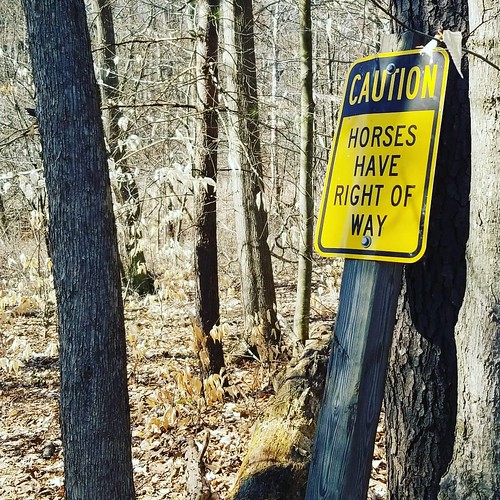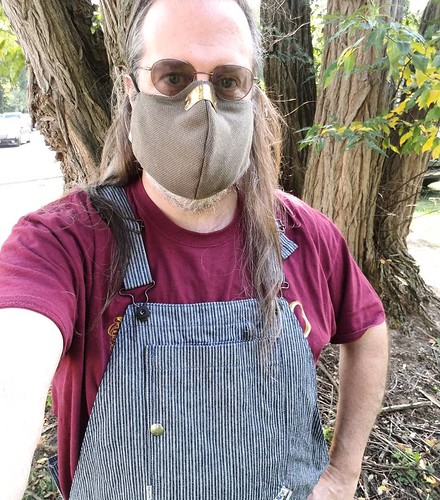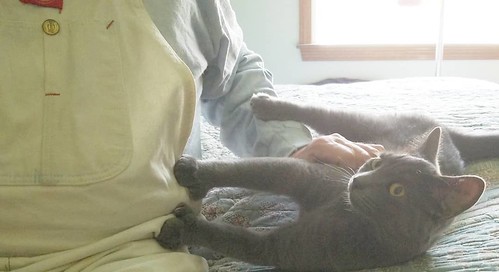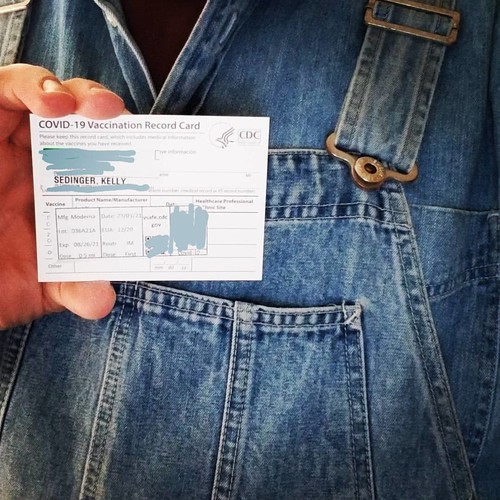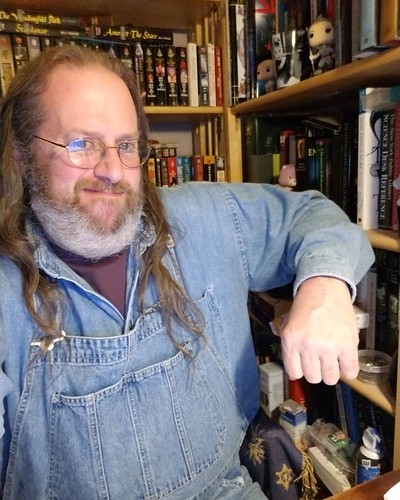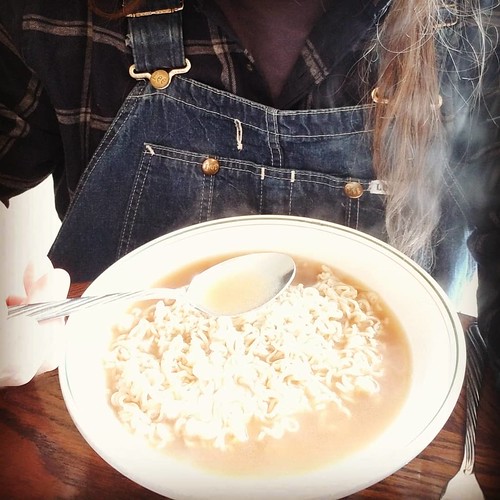A couple weeks ago, we finished watching Season Two of The Mandalorian, so here are my thoughts on the show, including thoughts on Season One. None of this is in any particular order. In fact, it's pretty damned random, because that's how I blog. This is the way.
(Note: I know that his name is actually "Din Djarin", but I'm going to refer to him as either "The Mandalorian" or "Mando", as he is dubbed by the Carl Weathers character.)
ITEM the ZEROTH: OK, before I begin talking specifically about The Mandalorian, I have to once again complain about how lax the Internet is with spoilers. Many are careful, but it seems to me that most are not, and even if the ones who are not do not actually constitute a majority, there are enough of them out there that it really doesn't matter. We did not watch The Mandalorian as it unfolded; we waited until the seasons were complete to enjoy them. This, of course, meant that nearly every major development was spoiled for us.
When the era of streaming shows began, the original Netflix-led model was to make the entire show and then put all the episodes online at once, so you could watch the entire series in a weekend if you wanted to. Now, the streaming services seem to be leaning more toward an adaptation of the original broadcast model, in which one episode is dropped a week for however many weeks it takes to get the entire thing out there. That's how The Mandalorian worked, with the result that within a day or two of each episode appearing online, the major events would be spoiled. And brazenly so! I'm not talking about people posting "WHOA!!! Did you SEE what happened on MANDALORIAN tonite!!!" and then discussing in the threads. No, they would post the spoiler right in the text so you had no chance to avoid it...or they'd post "SPOILERS!" but then also attach a screenshot from the show that had the spoiler right in it.
Disney very clearly structured the marketing of The Mandalorian, before Season One, to keep the appearance of Grogu (then dubbed by fandom "Baby Yoda") a surprise at the end of Episode One. That surprise lasted, I think, mere hours. I knew about "Baby Yoda" before noon of the very next day, and this went on for every major development in the show, over both seasons, right up to the appearance of Luke Skywalker.
I don't know that there's a solution to this, but it is most definitely an irritating aspect of 21st century fandom and geek culture. I'm not super-militant about maintaining my spoiler-virginity on everything I watch, but I would like the choice there to be mine.
On to actual stuff from the show:
ITEM THE FIRST: It's cool how this show has easily added its catchphrase, "This is the way", to the Star Wars lexicon. A lot of Star Wars teminology eventually does so, starting with "May the Force be with you!" being on everybody's lips way back in 1977, and leading up to Prequel terms like padawan and youngling showing up in general conversation. Now we have "This is the way". I also liked [character]'s habit of finishing his thoughts with "I have spoken!". This one hasn't caught on as well, but I like it and I try to use it from time to time.
This is a good thing for writers of sci-fi and fantasy to do, I think. People have things that they say repeatedly, out of ritual or habit, and I like it when writers of such material create such--is there a word for what I'm talking about?--slogans. George RR Martin is really good at this in A Song of Ice and Fire, as an example.
Having Mandalorians salute each other with "This is the way" is a really cool way of establishing their insular, internal culture.
ITEM THE SECOND: It's something of an article of faith that Star Wars, at least at first in A New Hope, was essentially a Western translated into a space opera. I've never quite bought into this notion. It seems to me less that Star Wars was a space Western than Star Wars used older tropes that many Westerns use as well. Star Wars's influences do include Westerns, but they also include the films of Akira Kurasawa, many of which also share tropes with Westerns without actually being Westerns. This show, more than any other of the Star Wars projects of the post-George Lucas era, put those tropes on display. You have the lone hero who lives his lonely life going from place to place, you have the dusty frontier outposts, you have the minor chieftains or warlords or outlaws who are ruling their little regions.
But again, I wouldn't say that The Mandalorian is a Western. I'd say that it shares a similar feel, with all those tropes. The closest analogue is the great Japanese manga Lone Wolf and Cub, which has a lone Samurai warrior traveling throughout old Japan, as he cares for his infant companion.
ITEM THE THIRD: In all honesty, I was never a big Boba Fett fan (more on him below). That said, it's interesting to finally get some of the backstory about the Mandalorian warriors. Our hero's commitment to his order's rules and laws gives him plenty of opportunity for internal conflict as he negotiates a deeply dangerous universe.
ITEM THE FOURTH: This story is set in the years after Return of the Jedi, when the Empire has fallen but the New Republic is still trying to gather its strength. This is a largely unexplored part of Star Wars lore. I liked seeing pockets of remaining Imperial strength, as surely much of the old infrastructure will keep on functioning, even in the absence of the Emperor. Factions will be jockeying for power, which is definitely something we see in this show. The show's structure dealt with this better in Season One, I think, as it showed our hero and baby Grogu moving into and out of these stories that are still going on.
But in Season Two, we start off with thrilling episodic adventures that take us from one world to another as Mando and baby Grogu have interesting adventures. This part of the series felt like the old Marvel Star Wars comics, the ones that were the first-ever tales told in the Star Wars universe beyond the scope of any movie. At that time, there was only one movie and just the barest beginnings of all the mythology that would unfold over the next four-and-a-half decades of Star Wars storytelling, so you had tales that had Han and Chewie going to a dusty backwater world for a Magnificent Seven type of adventure (and that was way more of a "space Western" than A New Hope ever was!), and then Luke and company had an adventure in a little local war on a planet that was nothing but oceans, and then there was some intrigue on a space casino...well, you get the point. Back then, the only Star Wars storytelling in town was a sequence of fun space adventures. In its best episodes, for me, The Mandalorian hearkened back to that feel.
Toward the end of Season One, our hero and his young charge run afoul of an Imperial official and his still-loyal soldiers who are looking for young Grogu (who hasn't been named yet, by this point), and the first season ended with a bit of a cliffhanger that made clear that our Imperial official, Moff Gideon, was going to be a continued problem. And that was pretty cool, as it's still interesting that all the Big! Grand! Events! that have redefined Galactic history elsewhere (Vader killing Palpatine, the Rebels defeating the Empire) really haven't had that great an effect in the Outer Rim. Still, my hope was that all the Empire-versus-New Republic stuff would be kept firmly in the background.
Sadly, about halfway through Season Two, the tone shifts completely, away from the cool adventures and into Bigger Mythology, which is when I started to lose a bit of my enthusiasm. Mando learns that Grogu is clearly a powerful being, and that he can only be safe with a member of a race of wizards called "Jedi", who were apparently a major enemy of the Mandalorians at one point. This quest, for Mando to deliver Grogu to "his people" (not necessarily his species, which has still never been named!), forms the backbone of the second season: Moff Gideon is still searching for Grogu for his own purposes, while Mando is trying to get him to the Jedi. As this story takes over, we're squarely back in Empire-versus-Jedi again, albeit looking in from the outside.
Structurally, this quest takes on a repetitive note: someone tells Mando that they've heard of a Jedi or something Jedi-like on some planet; he goes to that planet and finds what he can find, but it's not the right place, so he's told..."Go to this planet instead." There's a kind of lather-rinse-repeat feel in the middle episodes of Season Two because of this.
Then there's an episode which a lot of fans were really looking forward to: Mando goes to a planet where he's heard there's a Jedi, but it's actually Ahsoka Tano, a character from the Clone Wars animated series (which I haven't watched). Ahsoka was a Jedi padawan way back when, but since the fall of the Jedi and the rise of the Empire she's been on her own (and my understanding is that she's actually left the Jedi order, for whatever reason). There's an adventure here, and then at the end of the episode, Ahsoka says that no, she can't take Grogu and train him, but if Mando goes to [insert planet], he'll find someone! So off we go again. Meanwhile, Ahsoka captures the episode's Villain-of-the-Week and demands, before the episode ends, "Where is Grand Admiral Thrawn?"
Nothing ever comes of that. It's just there.
And that's my main problem with the back half of Season Two: just about all of it feels like set-up for stuff to come later, or fan service, or an odd tying together of seemingly every story and every character who is already out there.
This has actually been a long-time problem with Star Wars, and it can infect other large franchises, too: for worlds that are supposedly incredibly vast, it sure is odd how everyone ends up knowing everyone else. When Boba Fett showed up in Season Two, I had to go look up the character's history post-Return of the Jedi, because I just haven't kept up with a lot of it. (Remember, if all you watch is the movies, the last word on Boba Fett was that he got eaten by the Sarlacc, so to find him quite alive and well is a bit of a shock...but then, in every post-ROTJ story ever, starting with Marvel's own comics back in 1983, he's gotten himself spit out by the Sarlacc, because writers just can't quit the guy.) In The Mandalorian, it's never mentioned how Fett got out of the Sarlacc, so I figured I'd check it out. It turns out that in all the comics and books (and maybe shows too, which I haven't watched), Boba Fett has had a long history in which he has interacted at one point or another with everybody in the Star Wars universe.
Surely not all of Star Wars needs to boil down to "Ain't nothin' but a family thing."
But to go back to Ahsoka Tano's mention of Grand Admiral Thrawn...that's nothing but set-up for something to come. Ditto all the mentions of retaking the Mandalorian home planet, or whatever. For the entire back half of Season Two, I felt like I wasn't watching a story but rather a long sequence of set-up events, like the end-credits scenes from MCU movies, each expanded to episode length.
ITEM the FIFTH: There's a lot more fan service in Season Two than there is in Season One, but for the most part I was cool with it...until the very end. It was nice seeing Boba Fett's ship again, and yes, I'll admit an internal squeal when I realized he was going to deploy the seismic charges (the most underrated weaponry in all of Star Wars: how can you not love a bomb that detonates with a colossal electric-guitar TWANGGGGG!) But this show really went way too far with the idea that Imperial Stormtroopers are terrible shots. In scene after scene after scene after scene, we see Mando and his allies picking off the Stormtroopers one by one, while the Stormtroopers flail and fire randomly and seemingly can only win by virtue of sending hundreds of themselves into battle against two people.
But the worst fan service comes at the very end of the last episode.
Judging by the reactions I saw online after this episode aired, I am in a very small minority here...but I did not like Luke Skywalker's appearance.
First, from a pure storytelling stance, it was pure Deus ex machina. Our heroes are backed into the corner, there seems to be no way out...and along comes, at just the right moment, the Greatest (and, currently, Only) Jedi in the Galaxy to bail them out, carving his way effortlessly through the legion of battle droids (who, having been disposed of earlier in episode, manage to turn around and show back up again, in a kind of Diabolis ex machina to make the Deus necessary). This whole scene seems visually designed to echo the Darth Vader scene at the end of Rogue One, which is another scene that I, contrary to just about everyone else, greatly dislike.
Now, by the time I got around to watching this I had been long-spoiled (thanks, Internet!), but even so...while everyone else was cheering at this, I found it just...well, sigh. And not just because it was Deus ex machina, but it put me in mind of the Sequel Trilogy of movies, whose events lie a decade or two in the future of these characters. Luke takes Grogu off to properly train him in the ways of the Force...but here's the thing. We know from those movies (about which I need to write some final thoughts, I guess) that Luke's efforts to establish a new Jedi order come to spectacular ruin. It's entirely possible that Kathleen Kennedy, Jon Favreau, and Dave Filoni (the current High Poobahs of the Star Wars enterprise) have ideas to the contrary, but since we know that eventually Luke Skywalker ends up depressed and dejected on Ahch To as the Empire's remnants rise again as the First Order and come very close to retaking the Galaxy, and since in none of those events does an older and fully-trained Grogu show up to do useful stuff, I have to assume for now that Grogu is simply one of Luke's students who is later murdered by Ben Solo/Kylo Ren.
I know, there's a lot of story that can unfold between now and then, and maybe we do get a story later on someday of Grogu's Last Stand...or maybe the Star Wars writers can actually come up with a satisfying way of sparing Grogu the fate of falling before the Knights of Ren and also not playing a part in the whole First Order War. (Or maybe they end up just retconning those movies out of existence, which would in all honesty not bother me at all, as much as I love The Last Jedi.)
ITEM the SIXTH: To bring this back to a positive note, since I really did enjoy both seasons on balance even with my reservations and my genuine distaste for Season Two's ending, I love this show as a production. It just looks fantastic, with a lot of imagination in its visuals and yet still firmly tied to familiar Star Wars aesthetic. The end credits are even worth watching, as they scroll over illustrations of scenes from each episode that stylistically hearken back to the great Ralph McQuarrie paintings that helped George Lucas establish his visual vocabulary for Star Wars in the first place. The music is neat, adding a whole new sound world to the Star Wars universe and moving well beyond the general John Williams sound. And despite my misgivings noted above, the writing is often excellent! Individual episodes move quickly and the dialogue is surprisingly crisp and witty.
What really makes The Mandalorian work as well as it does is the acting, though. There's not a bad performance to be had here, and each actor in this show creates a unique character. I would single out Pedro Pascal for special mention here, since except for a couple of scenes, he has to convey everything through body language and his voice work...and it works completely. Mando is as vivid a character as any in the Star Wars universe.
As for the other main lead? Grogu is terribly well-done, isn't he? I haven't looked it up at all, but I assume that he is a blend of CGI and puppetry. He's cute, but not nauseatingly so; he has real facial expressions and at times his behavior is not cute at all. I have to admit that I hope Season Three somehow manages to reunite our Lone Wolf with his cub.
ITEM the SEVENTH: I also want to note the nifty spaceship design in The Mandalorian. The aesthetic here is much more Original Trilogy Star Wars than Prequel Trilogy Star Wars; everything here is old and used and lived-in and beaten up. Living spaces are tight and cockpits are cramped and ships look and sound like what they are: machines that have been put through their paces and asked to do things that they were never built to do in the first place. Mando's ship, in particular, is great, and it's quickly become one of the iconic ships in all of Star Wars. It's sad that it got destroyed at the end of Season Two. (I do note that its outboard thrusters, which rotate on their axes depending on where the thrust is directed to go, owe a conceptual debt to the Serenity of Firefly fame.)
ITEM the EIGHTH: I loved the music for this show! It's Star Wars meets the spaghetti westerns, indebted both to John Williams and to Ennio Morricone.
IN CONCLUSION, YOUR HONOR: I really did enjoy both seasons of The Mandalorian and I'm looking forward to what is to come. I do hope, however, that the show steers back toward being its own mostly-self-contained thing, and not a vehicle for backdoor-piloting other Star Wars stories. I also hope that it doesn't delve too much into larger stories about Galactic politics and ancient wars. I have absolutely nothing against those things! But...I'd like to think that Star Wars can still be more than that. There's nothing wrong with smaller stories where the stakes aren't galactically high. In fact, sometimes the most compelling stakes are the small ones, and I prefer The Mandalorian when it's concerned with a few people trying to hold on to what they have.
Like a Western. In space.
I have spoken.
(
art credit)

